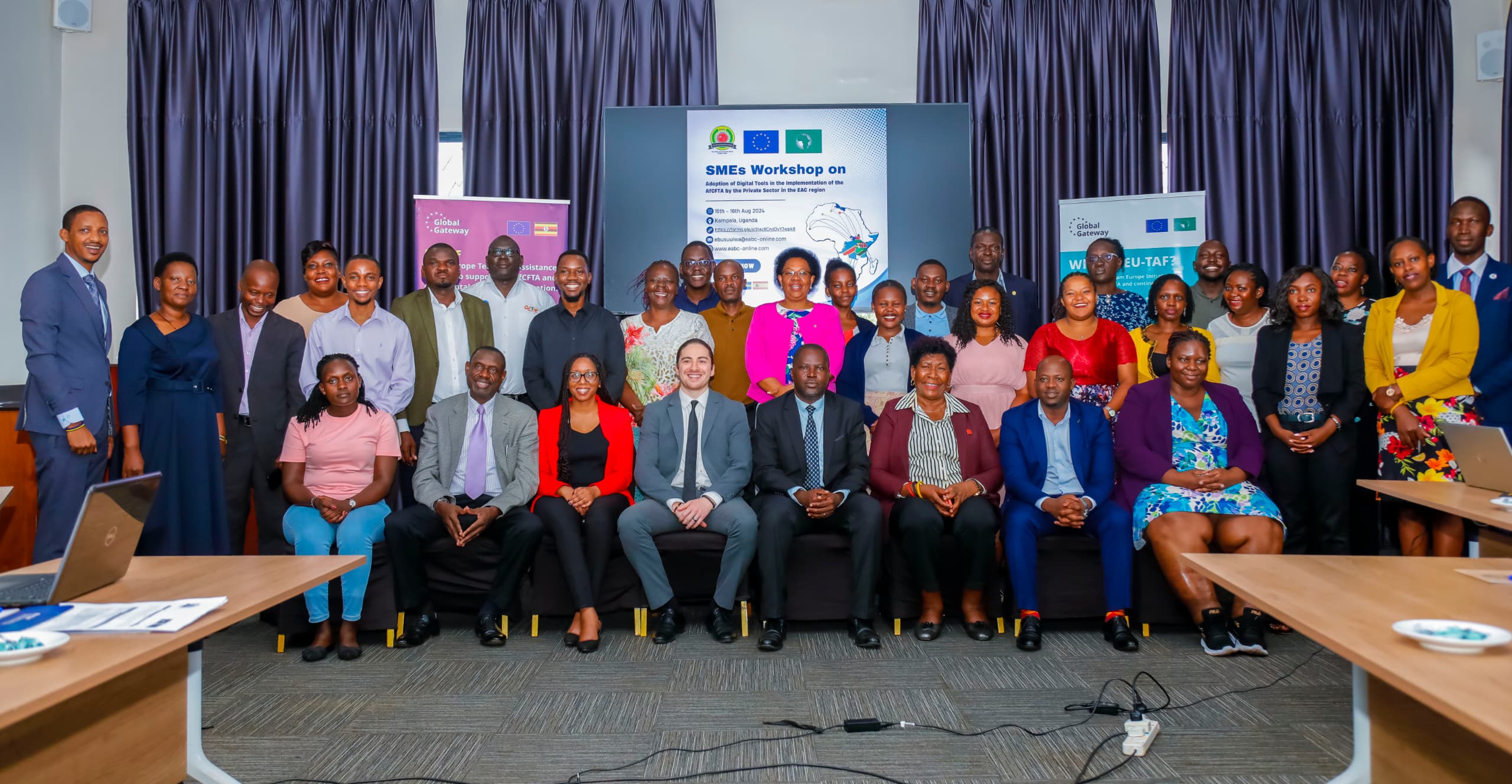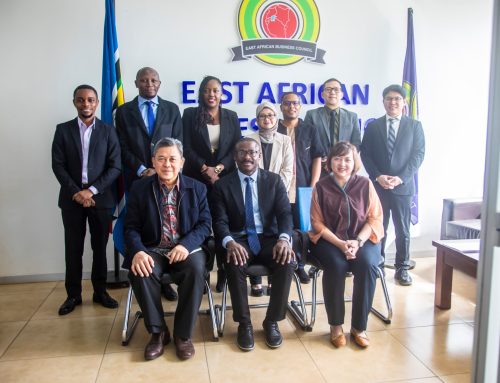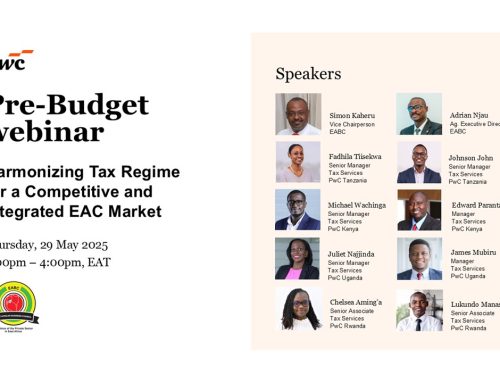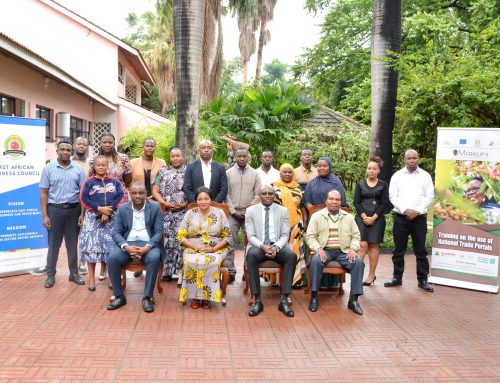Thursday, August 15, Kampala, Uganda: The East African Business Council (EABC), in collaboration with the EU Technical Assistance Facility (EU-TAF) and GIZ-EAC, launched a Capacity-Building Workshop on Exporting to the AfCFTA Market via E-Commerce Digital Platforms.
The workshop was officiated by Mr. Johnson Abitekaniza, Commissioner for Business Development and Quality Assurance at the Ministry of Trade, Industry, and Cooperatives who commended EABC and EU-TAF for raising awareness on AfCFTA and promoting intra Africa trade. Mr. Abitekaniza emphasized that compliance with international standards and proper packaging for the export market is not just a requirement but a necessity to access new markets. He called for more support for entrepreneurs to enhance product standards, packaging, and branding to access broader markets under EAC and AfCFTA.
Geoffrey Kamanzi, Policy Manager for Trade in Services, representing the EABC Executive Director, stated that the AfCFTA Guided Trade Initiative is already operational and urged the EAC private sector to stay informed on how to trade under the AfCFTA arrangement. He announced that EABC will be rolling out similar workshops in other EAC countries to boost the adoption of digital tools and enhance SMEs’ preparedness to trade under AfCFTA.
Challenges such as poor regulatory frameworks, different national currencies, inadequate courier services, limited awareness, duplication of costs, security issues, and ICT phobia hinder trading via e-commerce. Mr. Francis Kisingira, Membership Officer at the Private Sector Foundation Uganda (PSFU), reiterated PSFU’s commitment to collaborating with EABC to address barriers to intra-EAC and continental trade. He emphasized that the EAC bloc should transition from exporting raw materials to exporting value-added products to boost intra-African trade. He also noted that the adoption of digital tools can overcome many challenges impeding trade and enhance market access for EAC-originating products.
Sofian Dahmani, Program Officer at the EU Delegation, highlighted that an effective e-commerce ecosystem is expected to provide the business community, especially SMEs, with increased trade opportunities through better access to regional and continental market opportunities. He noted that the African Digital Trade agenda has been elevated by the recent adoption of the AfCFTA protocol on digital trade by the Council of Ministers in February 2024. This adoption presents a significant opportunity for Africa’s economic integration and digital transformation.
FedEx, a leading logistics company, delivered a keynote on selecting a logistics partner and the export requirements, including certificates of origin, sanitary and phytosanitary certificates, and other necessary documentation.
The workshop brought together over 50 SMEs from various sectors, including manufacturing, services, agribusiness, handicrafts, and general trading. This capacity-building workshop aims to empower SMEs to utilize digital tools to better connect with their counterparts across the EAC and the continent.
The workshop also featured success stories from SMEs whose products have successfully accessed international markets.
Key topics discussed included logistics and collection points, cybersecurity, tracking systems, real-time transactions, stable exchange rates, business partnerships and alliances, and regional cooperation.













